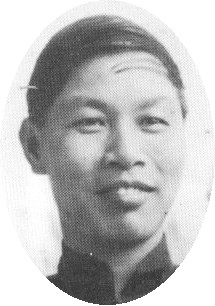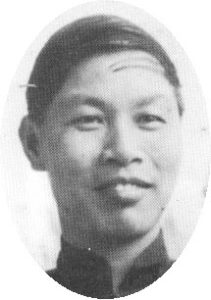 Matthew records for us 5 stories that Jesus told to help us be prepared for the last days and Jesus’ second coming to earth. Set amongst these stories that Jesus tells is what is often called, “The Parable of the Talents.” I’ve taught this in Sunday School to children, but in reality, it is a very scary story.
Matthew records for us 5 stories that Jesus told to help us be prepared for the last days and Jesus’ second coming to earth. Set amongst these stories that Jesus tells is what is often called, “The Parable of the Talents.” I’ve taught this in Sunday School to children, but in reality, it is a very scary story.
Jesus says that when he comes again it will be like this: Matthew 25:14–30 “For it will be like a man going on a journey, who called his servants and entrusted to them his property. To one he gave five talents, to another two, to another one, to each according to his ability. Then he went away. He who had received the five talents went at once and traded with them, and he made five talents more. So also he who had the two talents made two talents more. But he who had received the one talent went and dug in the ground and hid his master’s money. Now after a long time the master of those servants came and settled accounts with them. And he who had received the five talents came forward, bringing five talents more, saying, ‘Master, you delivered to me five talents; here, I have made five talents more.’ His master said to him, ‘Well done, good and faithful servant. You have been faithful over a little; I will set you over much. Enter into the joy of your master.’ And he also who had the two talents came forward, saying, ‘Master, you delivered to me two talents; here, I have made two talents more.’ His master said to him, ‘Well done, good and faithful servant. You have been faithful over a little; I will set you over much. Enter into the joy of your master.’ He also who had received the one talent came forward, saying, ‘Master, I knew you to be a hard man, reaping where you did not sow, and gathering where you scattered no seed, so I was afraid, and I went and hid your talent in the ground. Here, you have what is yours.’ But his master answered him, ‘You wicked and slothful servant! You knew that I reap where I have not sown and gather where I scattered no seed? Then you ought to have invested my money with the bankers, and at my coming I should have received what was my own with interest. So take the talent from him and give it to him who has the ten talents. For to everyone who has will more be given, and he will have an abundance. But from the one who has not, even what he has will be taken away. And cast the worthless servant into the outer darkness. In that place there will be weeping and gnashing of teeth.’”
Notice, the king is not giving them gifts but entrusting his servants with his personal property. He is trusting his servants with an investment. All of our talents, our wealth, our spiritual gifts are not ours, they are our master’s property given to us to manage until he returns. What a high amount of trust the Master is placing in us! Never more than we could handle, but just enough. How much am I returning on the investment Christ has blessed me with?
Well, the first thing I want to know, is why did the master trust one servant with 5 talents, one servant with 2 talents, and 1 servant with only 1? Right off the bat, I’m thinking that’s not fair. But interestingly enough, it is said that the master knew the abilities of his subjects. He gave them just what they could handle. In a sense, he gave them the same, the amount they could handle.
I’ve always thought of myself as a 2 talent Christian, surely not a 5 talent Christian like Billy Graham or someone. And not a 1 talent Christian because God has blessed me from top to bottom in so many ways. And so, as a 2 talent Christian, I tend to think that I can invest part time. 5 talent Christians must invest in the kingdom of God full time but us mere 2 talent folks can do a little for God because he’ll only expect a 2 talent return.
But what I missed was that the master is looking for a 100% return from each of his servants. Whether we are 5 or 2 or 1 talent Christians he expects 100 percent return on the talents, the blessings, the spiritual gifts he has given us. And when I consider everything God has blessed me with, maybe I am a 5 talent servant, just a lazy one. How much am I returning on Christ’s investment in me?
That is why this is scary. The older we get the closer we get to a meeting with our maker, the metaphoric return of the master. The more we’re blessed with, the more we are responsible to give back to the master on His return.
Are we to live in fear? I think so. I think we are meant to live with a healthy respect for the return of the master. That is what this parable is calling for. Yes, God’s grace abounds (there is a talent) and our sins are forgiven (another talent) but that grace and that forgiveness simply means we have more responsibility, we’ve been invested with more. Jesus didn’t tell just one story about preparing for the end to his disciples, he told five. None of them are warm and fuzzy but alert us to our accountability. How much am I returning on Christ’s investment in me?
Christ has invested us with spiritual gifts, with talents, with minds, with belongings, with loved ones and friends, with varying degrees of health. What percent return are we ready to present on the investment in us.
How do we know what is a return on the investment? Our percentage return is what is done with eternal significance. Some of the other 4 stories in Matthew 24 and 25 spell it out for us. These ways to build on Christ’s investment begin with being willing to endure persecution for his sake while the master is gone, Mt. 24.13; staying alert and being ready for the return of the master, Mt. 24:42-44, Mt. 25:1-13; and the spiritual care for and feeding of Christ’s other servants, Mt. 24:45-47;
But finally, the most straightforward, clear command of how to build up Christ’s investment is spelled out in “The Parable of the Sheep and Goats” Matthew 25:35-40: For I was hungry and you gave me food, I was thirsty and you gave me drink, I was a stranger and you welcomed me, I was naked and you clothed me, I was sick and you visited me, I was in prison and you came to me.’ Then the righteous will answer him, saying, ‘Lord, when did we see you hungry and feed you, or thirsty and give you drink? And when did we see you a stranger and welcome you, or naked and clothe you? And when did we see you sick or in prison and visit you?’ And the King will answer them, ‘Truly, I say to you, as you did it to one of the least of these my brothers, you did it to me.’ Caring for “the least of these” is not only building on Christ’s investment in us but is caring for Jesus Christ incognito. What we do for Christ , His servants, and those in need will last for eternity.

Jesus’ disciple Peter, one who had heard this story from Jesus’ own lips later wrote this:1 Peter 4:10–11 As each has received a gift, use it to serve one another, as good stewards of God’s varied grace: whoever speaks, as one who speaks oracles of God; whoever serves, as one who serves by the strength that God supplies—in order that in everything God may be glorified through Jesus Christ. To him belong glory and dominion forever and ever. Amen.
Some of us have 5 talents, some have 2, some have 1, but no believer has not been invested in by God. I remember my grandmother when she was quite elderly. She could barely get around, she could no longer attend church, she couldn’t even sleep well. So she used her one talent left, the ability to pray for others. In those hours between bedtime and morning, she pray for each of her family members and different ministries. The next day she sent letters of encouragement to us and to radio preachers who had blessed her with their sermons as she lay awake at night listening to them on her transistor radio. Though her ability was diminished she brought a huge return on Christ’s investment in her life. She took 1 talent and turned it into 10.
When Jesus returns, what will you and I have to show for the investment, the talents, the blessing he has given us? Am I really only a 1 or 2 talent Christian or am I a 5 talent Christian who has some work to do in the kingdom of God? How much will I return on Christ’s investment in me?




 Matthew records for us 5 stories that Jesus told to help us be prepared for the last days and Jesus’ second coming to earth. Set amongst these stories that Jesus tells is what is often called, “The Parable of the Talents.” I’ve taught this in Sunday School to children, but in reality, it is a very scary story.
Matthew records for us 5 stories that Jesus told to help us be prepared for the last days and Jesus’ second coming to earth. Set amongst these stories that Jesus tells is what is often called, “The Parable of the Talents.” I’ve taught this in Sunday School to children, but in reality, it is a very scary story.


 Watchman Nee never attended a theological school, but like A.W. Tozer and Charles Spurgeon he taught himself by studying the Word of God, submitting himself to mentor’s like Margaret Barber, and by reading the works of thousands of other Christian writers.
Watchman Nee never attended a theological school, but like A.W. Tozer and Charles Spurgeon he taught himself by studying the Word of God, submitting himself to mentor’s like Margaret Barber, and by reading the works of thousands of other Christian writers.
 When we teach our classes and congregations, whether of 5, 12, or 100 people, we often worry it is not enough. Just a small pile of stones. We feel that to have a big impact for the Kingdom of God, we need more people, bigger ministries. But we do not know the impact of our small words for eternity. Perhaps one person who hears our Bible message will be transformed and affect 10, 1000, or 10,000 others. On and on it goes, spreading over the years. This is what happens when God is at work in our ministry, when the teaching is Biblical and empowered by the Holy Spirit a 12 words can have a lasting impact. That is what deep ministry looks like, transformational, replicating, growing deeper if not always visibly wider. Deep Bible teaching can grow a still deep ministry wider invisibly. No one but God may ever know on this earth the impact being had.
When we teach our classes and congregations, whether of 5, 12, or 100 people, we often worry it is not enough. Just a small pile of stones. We feel that to have a big impact for the Kingdom of God, we need more people, bigger ministries. But we do not know the impact of our small words for eternity. Perhaps one person who hears our Bible message will be transformed and affect 10, 1000, or 10,000 others. On and on it goes, spreading over the years. This is what happens when God is at work in our ministry, when the teaching is Biblical and empowered by the Holy Spirit a 12 words can have a lasting impact. That is what deep ministry looks like, transformational, replicating, growing deeper if not always visibly wider. Deep Bible teaching can grow a still deep ministry wider invisibly. No one but God may ever know on this earth the impact being had.






